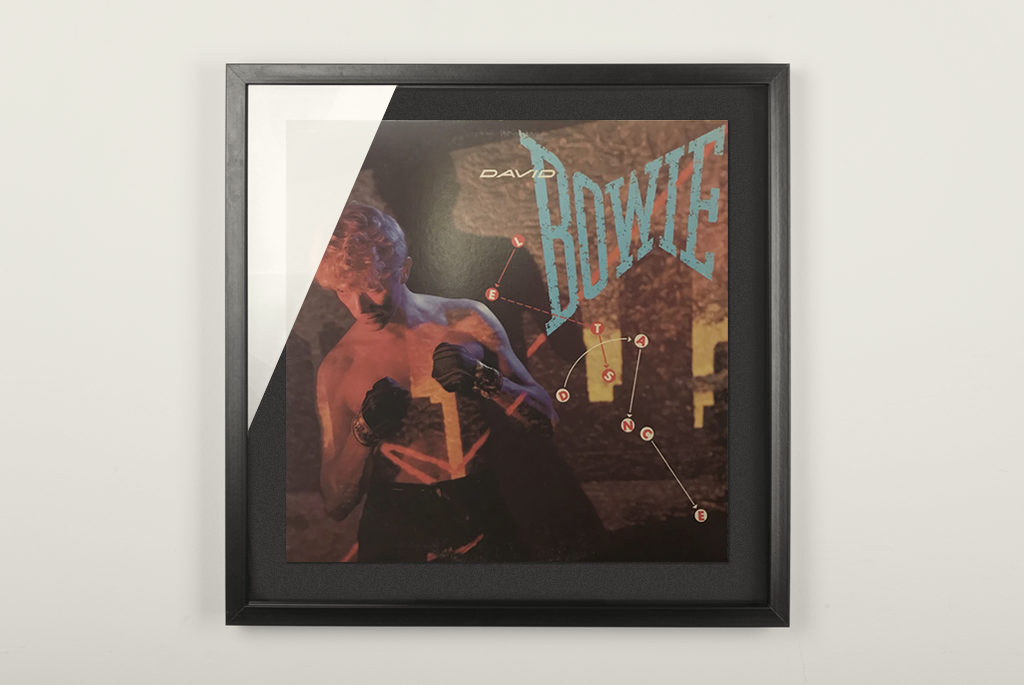When it comes to David Bowie, the views of his fans differ as to which album is his best. »Hunky Dory«? »Low«? Or perhaps »The Rise and Fall of Ziggy Stardust and the Spiders from Mars«? It’s difficult to decide, since they all have their qualities – and at the same time are all very different, ranging from glam rock to proto-ambient pop.

Let's Dance
Among Bowie’s 26 studio albums, there are also a number of contenders for the top spots, in addition to a number of reasonably good to less successful records. Ironically, one record that was his most successful ever ranks in the middle at best: »Let’s Dance« from 1983.
Some of his best songs
For Bowie, it was almost represented as a comeback at the time. Three years had passed since his album »Scary Monsters« and in the meantime he had left his record company RCA to join EMI. He had already tried out a few things musically, most recently in the form of a new wave sound that was going down well with the paying public. Now the next shedding of skin was imminent. In the case of »Let’s Dance«, the theme was clearly referenced in the title. Pumped-up disco and soul numbers in 80s style formed the basis for hits like »Modern Love«, »China Girl« and the title song.
For Bowie, who made constant reinvention his core brand, it was not the first time he had drawn on the R&B tradition. He had tested similar approaches on »Young Americans« in 1975, and ventured an even freer appropriation with »Station to Station« the following year. While Bowie’s choice of musical vocabulary in the seventies had a direct biographical cause – he had moved to New York at the time – »Let’s Dance« lacked any such local reference. He started living in Switzerland in 1978.
Not to raise false expectations: »Let’s Dance« will not be proclaimed Bowie’s misunderstood masterpiece here. It is too inconspicuous for that, at least in parts. […] Rather, it is the familiar howlers like »China Girl« where Bowie succeeds with some of his best songs.
Not to raise false expectations: »Let’s Dance« will not be proclaimed Bowie’s misunderstood masterpiece here. It is too inconspicuous for that, at least in parts. The entire second side of the album is rather solid, groove-based pop, albeit with plenty of charm. »Ricochet«, for one, has grim-edged funk and enigmatic – because difficult to understand – voice samples as its merits, »Cat People« a catchy chorus with wonderfully sultry drums.
But that’s not what makes the record so remarkable. Rather, it is the familiar howlers like »China Girl« where Bowie succeeds with some of his best songs. The curious thing about the latter is that it is not Bowie’s own material. It was written by his friend Iggy Pop when they lived together in Berlin in the same house in Schöneberg in the seventies, following his New York period. Iggy Pop had previously released a much rougher version of the track on his debut solo album, »The Idiot« (1977), again produced by Bowie; there was also a single released of it at the time, but it didn’t make any significant inroads in the charts.
This was accomplished with the polished Bowie re-release including Chinese-like quartal parallels of guitar and keyboard and, not least, thanks to the wonderfully dosed blues solo of the then not yet star guitarist Stevie Ray Vaughan, who died in a helicopter crash in 1990.
Niles Rodgers makes it crisp
In general, the efforts made by Bowie’s co-producer Nile Rodgers can be credited with a great deal of the success on »Let’s Dance«. The disco hero rounded up a number of musicians for the recordings, who all provided the requisite crispness. Alongside Rodgers on guitar, are drummer Omar Hakim and bassist Carmine Rojas.
It is a bit of a shame, however, that Bowie personally wasn’t too keen on the whole thing later on. Brett Morgen’s documentary »Moonage Daydream« from last year, for example, contains interview clips with Bowie where he talks about just doing what his fans wanted him to do on »Let’s Dance«. So, does any of this fit in with Bowie’s self-stylisation as an uncompromising artist who subordinates his life to his work without reserve? That he used to make similar judgements about »Young Americans« is a given. Strictly speaking, Bowie had to spread this type of information about his commercially highly lucrative musical ventures purely in the interests of brand management. It was in order to clear back stock and the like. You don’t have to feel offended as a fan.









